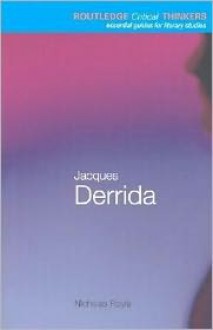In this entertaining and provocative introduction, Royle offers lucid explanations of various key ideas, including deconstruction, undecidability, iterability, differance, aporia, the pharmakon, the supplement, a new enlightenment, and the democracy to come. He also gives attention, however, to a...
show more
In this entertaining and provocative introduction, Royle offers lucid explanations of various key ideas, including deconstruction, undecidability, iterability, differance, aporia, the pharmakon, the supplement, a new enlightenment, and the democracy to come. He also gives attention, however, to a range of less obvious key ideas of Derrida, such as earthquakes, animals and animality, ghosts, monstrosity, the poematic, drugs, gifts, secrets, war, and mourning. Derrida is seen as an extraordinarily inventive thinker, as well as a brilliantly imaginative and often very funny writer. Other critical introductions tend to highlight the specifically philosophical nature and genealogy of his work. Royle's book proceeds in a new and different way, in particular by focusing on the crucial but strange place of literature in Derrida's writings. He thus provides an appreciation and understanding based on detailed reference to Derrida's texts, interwoven with close readings of such writers as Shakespeare, Coleridge, P.B. Shelley, Poe, Emily Brontë, Franz Kafka and Elizabeth Bowen. In doing so, he explores Derrida's consistent view that deconstruction is "a coming-to-terms with literature". He emphasizes the ways in which "literature", for Derrida, is indissociably bound up with other concerns, such as philosophy and psychoanalysis, politics and ethics, responsibility and justice, law and democracy.
show less

